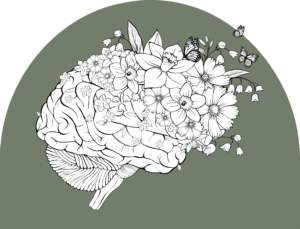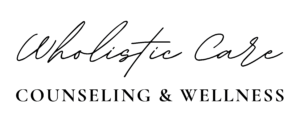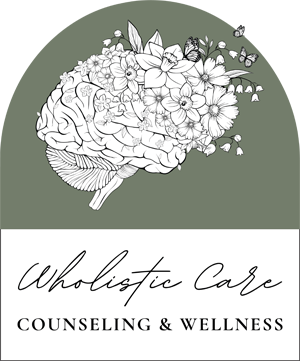Relationships are dynamic and ever-evolving journeys, filled with highs and lows, joys and challenges. Whether you're newlyweds or celebrating decades together, every couple encounters obstacles along the way. While some issues can be resolved through open communication and mutual understanding, others may require professional intervention. This is where couple's therapy comes into play.

Understanding the Dynamics of a Good Relationship
Communication
At the heart of every healthy relationship lies effective communication. It involves not just speaking and listening but truly understanding and empathizing with your partner's perspective.
Trust and Respect
Trust and respect serve as the foundation of a strong partnership. Building and maintaining trust requires honesty, reliability, and transparency, while respect entails valuing each other's opinions, boundaries, and autonomy.
Shared Goals and Values
Couples who share common goals and values tend to navigate through life's challenges more seamlessly. Whether it's career aspirations, financial priorities, or personal beliefs, aligning your visions fosters a sense of unity and purpose.
Signs Indicating the Need for Couple's Therapy
Even in seemingly healthy relationships, certain signs may indicate underlying issues that could benefit from professional intervention.
Communication Breakdown
Persistent misunderstandings, frequent arguments, or difficulty expressing emotions can signal communication breakdowns that may require outside assistance.
Resentment or Unresolved Conflicts
Unaddressed grievances and lingering resentments can breed toxicity within a relationship, leading to increased tension and distance between partners.
Emotional Distance
Feeling disconnected or emotionally distant from your partner, despite maintaining a façade of harmony, may indicate deeper underlying issues that need to be addressed.
Overcoming the Stigma Around Seeking Therapy
Despite the growing acceptance of mental health treatment, seeking therapy, especially as a couple, may still carry a stigma for some. However, it's essential to normalize the idea of therapy and debunk common misconceptions.
How Couple's Therapy Can Benefit Even Seemingly Healthy Relationships
Contrary to popular belief, couple's therapy isn't solely reserved for couples on the brink of separation. In fact, it can provide valuable tools and insights to enhance the quality of any relationship.
Strengthening Communication Skills
Couple's therapy equips partners with effective communication techniques, such as active listening, assertiveness, and empathy, fostering deeper understanding and connection.
Addressing Underlying Issues
Therapists help couples uncover and address underlying issues that may be contributing to conflicts or dissatisfaction, promoting healing and reconciliation.
Enhancing Intimacy and Connection
By fostering vulnerability and emotional intimacy, couple's therapy cultivates a deeper bond between partners, reigniting passion and rekindling romance.

Tips for Initiating Couple's Therapy in a Healthy Relationship
If you and your partner are considering couple's therapy to strengthen your relationship, here are some tips to facilitate a smooth transition.
Open Communication
Initiate an open and honest conversation with your partner about your desire to seek therapy, emphasizing your commitment to improving the relationship.
Mutual Agreement and Commitment
Ensure both partners are on board with the decision to pursue therapy and are willing to actively participate and engage in the process.
Finding the Right Therapist
Research and select a therapist who specializes in couples counseling and whose approach aligns with your values and preferences.
What to Expect During Couple's Therapy Sessions
Establishing Goals
At the onset of therapy, you and your partner will work with the therapist to define clear, achievable goals that you hope to accomplish through the counseling process.
Identifying Patterns and Triggers
Through guided discussions and exercises, you'll gain insight into recurring patterns and triggers within your relationship, enabling you to break destructive cycles.
Learning Effective Conflict Resolution Techniques
Therapists will teach you practical strategies for resolving conflicts constructively, fostering compromise, and promoting mutual understanding.
Implementing Strategies Learned in Therapy Into Daily Life
Consistency and Practice
Consistently apply the skills and strategies learned in therapy to real-life situations, practicing patience and perseverance as you navigate challenges together.
Flexibility and Adaptation
Be willing to adapt and adjust your approach as you encounter obstacles along the way, embracing change and growth as a couple.
Supporting Each Other's Growth
Encourage and support each other's personal and relational growth, celebrating progress and learning from setbacks together.
Celebrating Progress and Milestones
Recognizing Achievements
Acknowledge and celebrate the progress you've made as a couple, no matter how small, recognizing each milestone as a testament to your commitment and resilience.
Acknowledging Efforts
Express gratitude and appreciation for your partner's efforts and contributions towards improving the relationship, fostering a culture of positivity and mutual support.
Reinforcing Positive Changes
Reinforce positive changes by incorporating new habits and behaviors into your daily routine, ensuring lasting transformation and continued growth.

Conclusion
In conclusion, couple's therapy offers a valuable opportunity for couples to strengthen their relationship, regardless of its current state. By addressing communication breakdowns, resolving conflicts, and fostering intimacy, therapy equips partners with the tools and insights needed to navigate life's challenges together. If you and your partner are committed to growth and connection, seeking the guidance of a qualified therapist can pave the way for a healthier, more fulfilling relationship.





